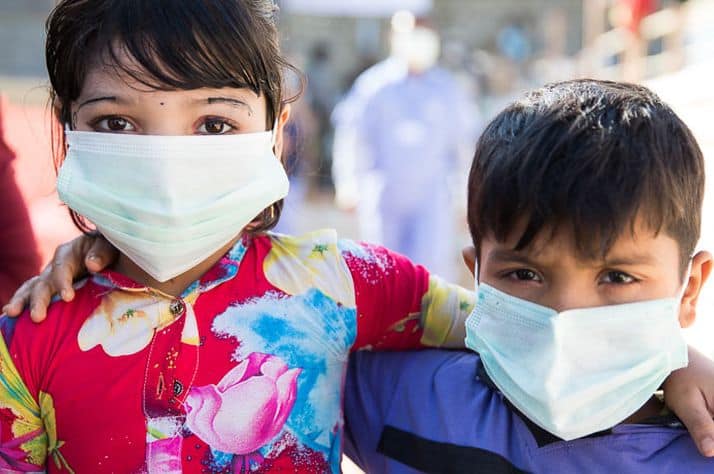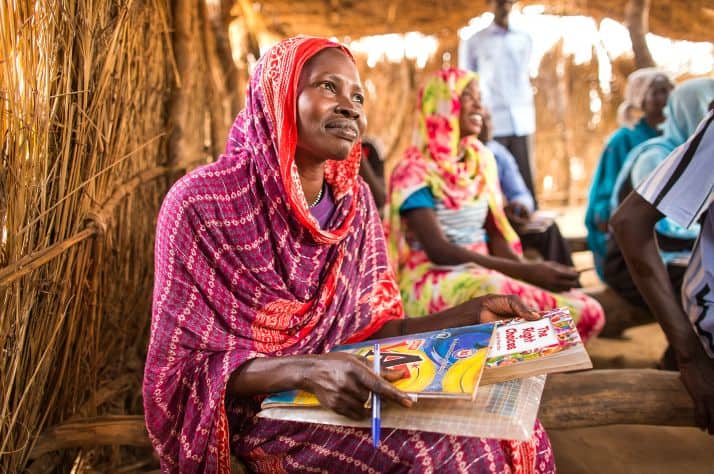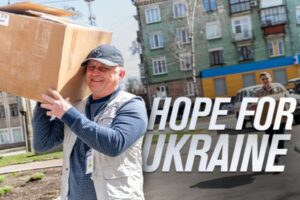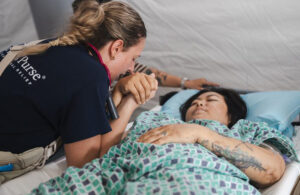Rohingya refugees in Bangladesh receive care at the Samaritan’s Purse Diphtheria Treatment Center.
By Melissa Lilley
“I would take her pain if possible,” Lyla told me.
Lyla and I talked while her daughter, 8-year-old Sumaya, slept beside her on a bed in our Diphtheria Treatment Center. They came to the center because Sumaya’s throat was so swollen she couldn’t eat or drink.
Sumaya had already been sick for three days before coming to our center. Watching her daughter battle a potentially deadly infection, and with no way to help ease her suffering, had proven nearly unbearable for this mother’s heart.
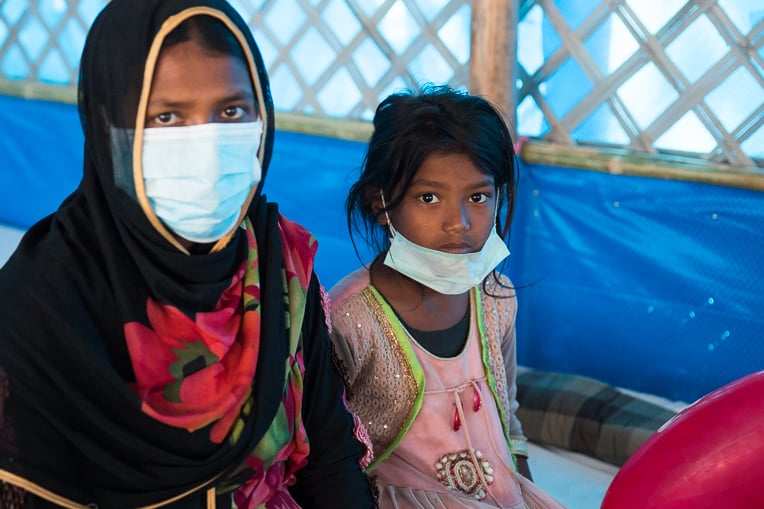
Mother and daughter both experienced relief at the Samaritan’s Purse treatment center. Sumaya felt better just a few hours after receiving treatment and was able to return home two days later.
Lyla didn’t leave her daughter’s side while she was in our care. Her love for her family is fierce. Although the future is uncertain living in a Rohingya refugee camp, Lyla still clings to hope for the sake of her children.
All the moms, dads, grandparents, aunts, and uncles I met in the center displayed such an astounding fortitude that it was startling. Their resilience and love outweighed the tremendous pain and sorrow they’ve endured as refugees.
They shared stories of fleeing their home in Myanmar and crossing the border into Bangladesh. They told me about leaving everything behind except the clothes they wore.
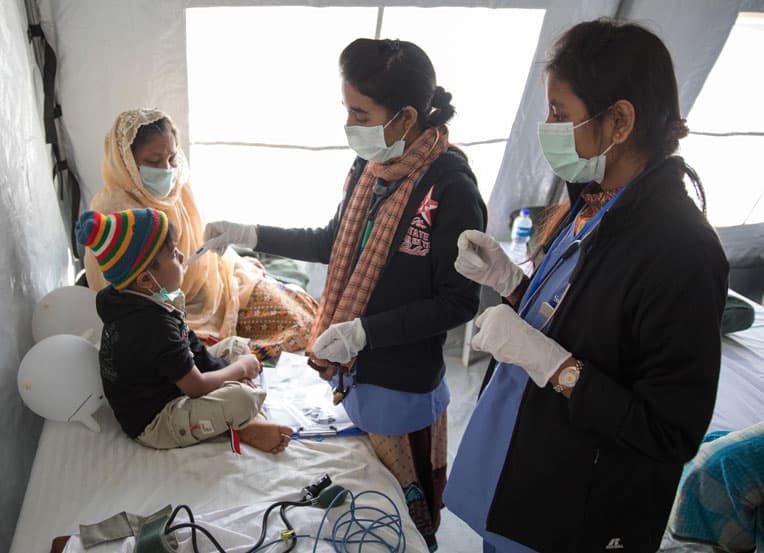
Shofika, a mother of eight, spoke about the separation her family endured as soon as they arrived in Kutupalong refugee camp, where our treatment center is located. The family didn’t have a house, and until they could build one, her children had to be split up between neighboring homes.
Shofika’s 16-year-old daughter, Roshida, had trouble breathing when she came to our center. Our medical team administered diphtheria antitoxin by IV to help her recover—and they demonstrated the compassion of Christ, which did not go unnoticed.
“They gave the treatment with care and love,” Roshida said. The teenager said she was also grateful that our team showed kindness to her mom.
I also met Mahamuda, a 60-year-old grandmother who lives with her two grandchildren, daughter, and son-in-law in Kutupalong. Her husband died a few months ago in the conflict.
Mahamuda brought her grandchildren to our Diphtheria Treatment Center because they told her over and over that they were in pain. We treated them for the disease, and they soon recovered.
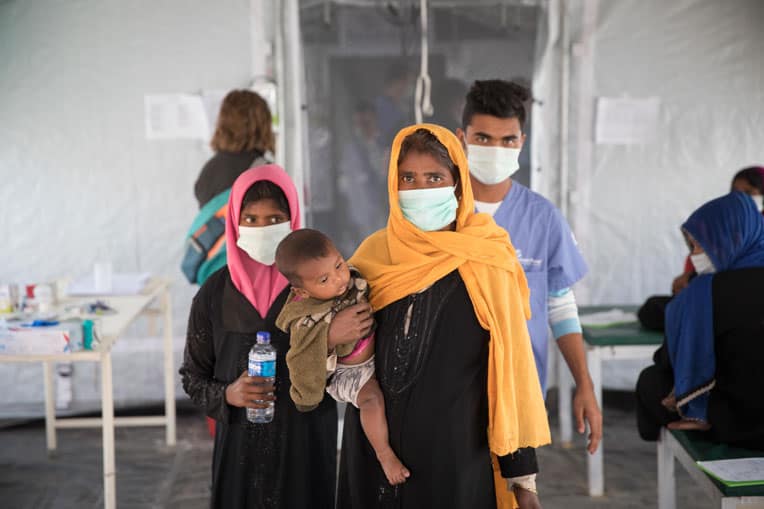
Nonetheless, life remains terribly difficult for Mahamuda and her family. Their house is made of bamboo and plastic and offers little protection from cold or rain. They don’t have enough to eat in Kutupalong.
“There is fear in my heart,” Mahamuda said. “I am concerned about my family.”
I know Mahamuda is afraid. I know Shofika and Lyla worry about their children. Yet, they have much more than fear in their hearts.
These women love their families and are determined to press on despite heartaches and harrowing experiences that I cannot begin to comprehend. These mothers are strong and beautiful, yet tender, letting their tears flow.
Please pray for the Rohingya. Please pray that God would give them wisdom and grace. Pray they will come to know their Heavenly Father’s steadfast love for them.


